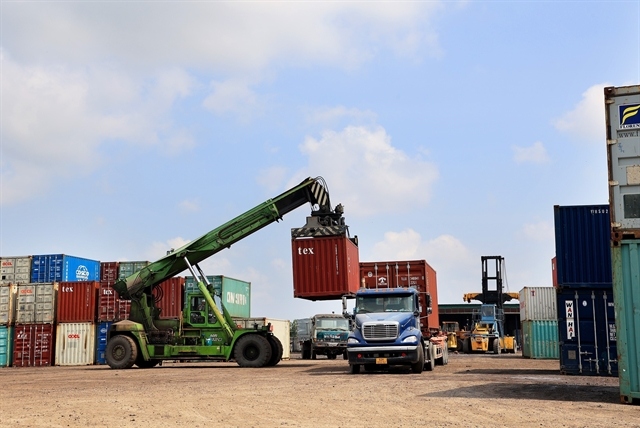Enterprises urged to explore niche markets while exports decline
Enterprises should look for niche markets to better cope with declines in exports in major markets.

According to the Ministry of Industry and Trade’s report at a meeting with trade counselors on July 31, Vietnam’s exports to most major markets saw declines so far this year due to falling consumption around the world.
Key industries such as garments and textiles, footwear, wood, machinery, phones and components saw double-digit decreases in exports to major markets such as the US and the EU.
Deputy Minister of Industry and Trade Do Thang Hai said that enhancing trade promotion played an important role in creating growth through market expansion and exports.
Truong Van Cam, Deputy President of the Vietnam Textile and Apparel Association, said that 85% of production capacity from textile and garment firms was for export, and needed accurate market information to develop their strategies.
Phan Thi Thanh Xuan, General Secretary of the Vietnam Leather Footwear and Handbag Association, said that new regulations in markets like the EU and the US are causing domestic producers and exporters headaches. They are in dire need of support to get the most up-to-date information regarding trade policies and regulations to deal with difficulties in export markets.
The wood industry is expected to face a slump in exports this year after 15 years of rapid expansion. Ngo Sy Hoang, Deputy President of the Vietnam Timber and Forest Products Association, said that in order to regain export growth, the wood industry needs support to expand into new markets and convey the message that Vietnam strongly implements its commitments to legal timber.
According to Tran Ngoc Quan at the Vietnam Trade Office in Belgium, the EU is preparing to issue new regulations related to the environment, sustainable development, carbon emissions, the right to repair and recycle, human rights, and anti-deforestation acts.
These regulations pose a concern as it would be difficult for Vietnamese enterprises to export under their own brands because the EU requires a chain for purchasing and processing products for recycling.
The EU–Vietnam Free Trade Agreement (EVFTA) provided opportunities to increase exports to the EU, he said. On the other hand, the EU is shifting strongly to a circular economy, Quan said, urging domestic enterprises to take action for conversion because when the regulations come into force, they will strongly affect exports.
Do Manh Quyen, head of the Houston Branch of the Vietnam Trade Office in the US, said that major export products of Vietnam saw significant drops in the US recently. Enterprises need to redefine their production and business strategies and increase the understanding of regulations to promote exports to the US, together with improving product quality and renovating production technologies.
Quyen also urged businesses to find niche markets to cope with the disruptions caused by falling demand. Trade promotion should also be enhanced to find opportunities to settle inventories.
Hai urged Vietnamese trade counselors to strengthen market and policy studies to provide consultancy regarding market development strategies and trade exchanges.
Focus should be placed on researching and analysing policies and markets to promptly propose solutions to remove obstacles of technical and non-tariff barriers to exports, he said.
He urged cooperation among relevant agencies to be enhanced to grow exports to major markets and create conditions for enterprises to participate in global supply chains.
Enterprises must strictly comply with the requirements of key export markets in terms of origin traceability and production procedures to be able to expand exports, Hai said.
